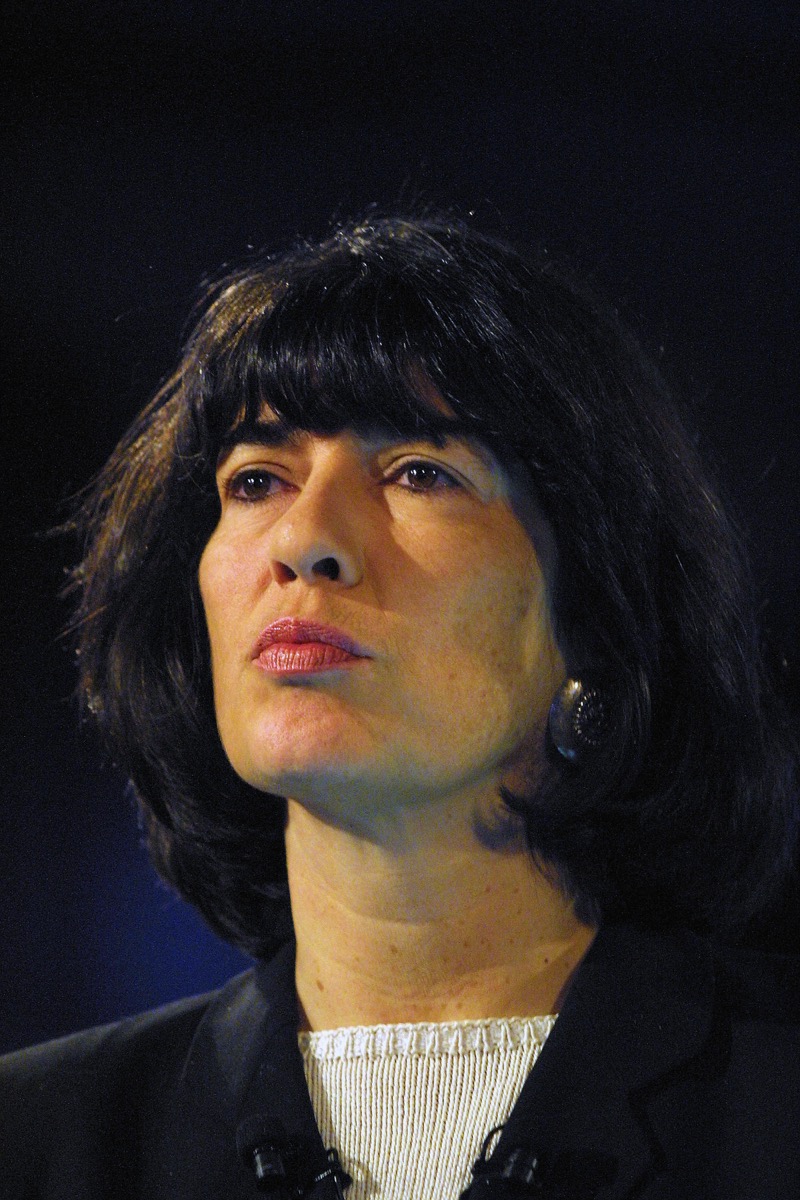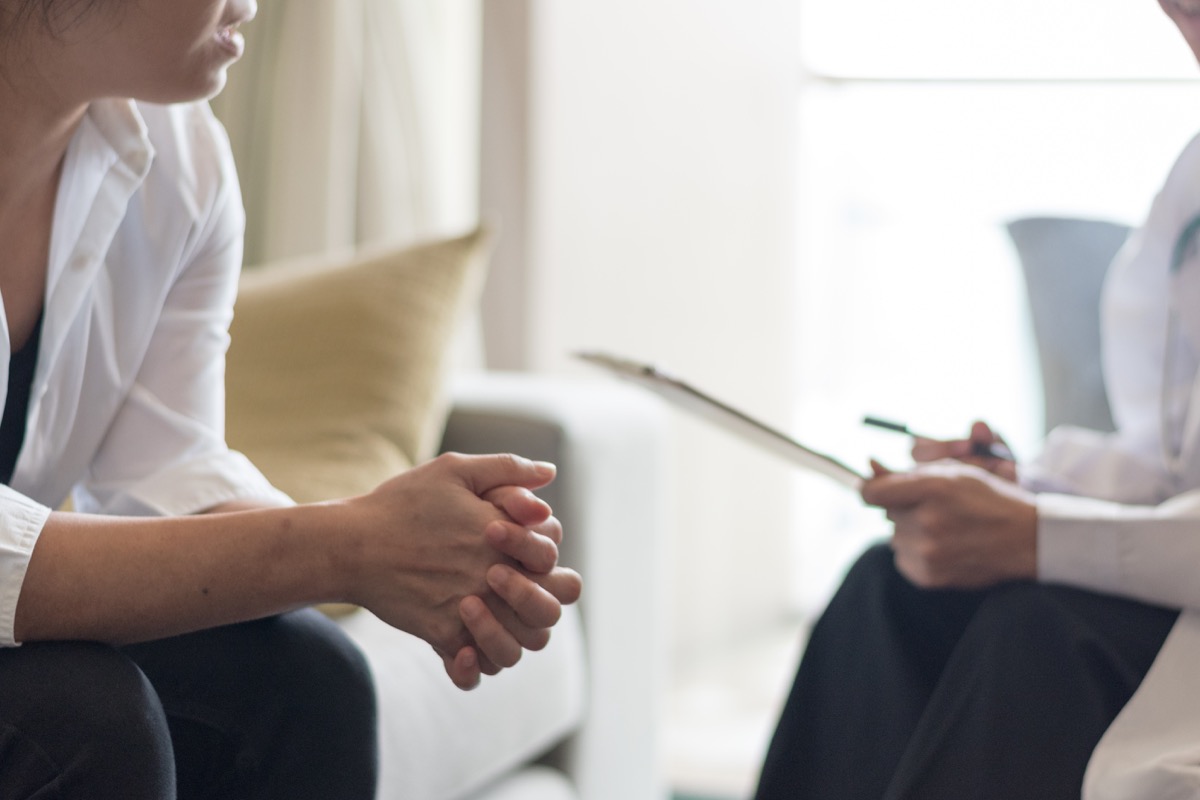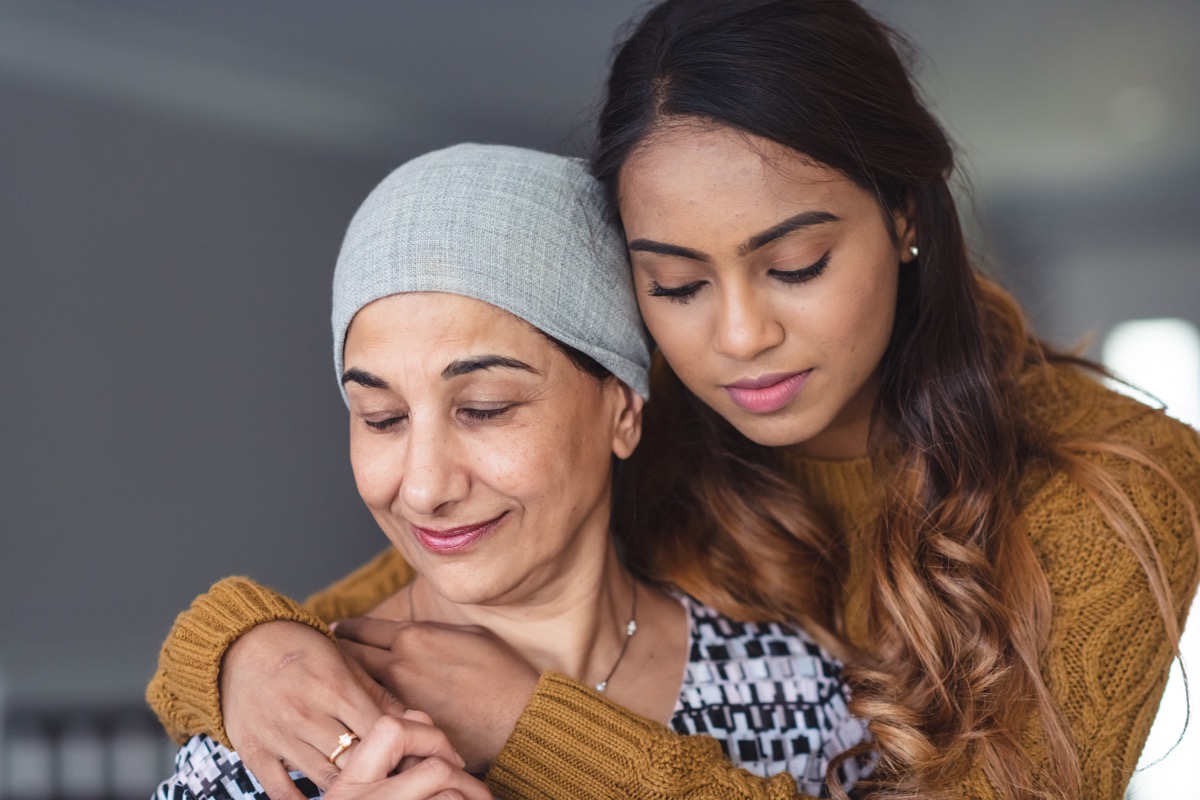Christiane Amanpour Urges Women To Do This After Revealing Cancer Diagnosis

Christiane Amanpour has earned admiration over the years through her unwavering and fearless coverage of international conflict. Now fans are once again admiring her strength after she recently shared that she has been fighting ovarian cancer. Amanpour, a 63-year-old chief international anchor for CNN, was off-air for four weeks, and when she returned on June 14, she revealed her diagnosis to viewers. Amanpour says she’s “confident” in her prognosis, but she also took the time to offer her own advice to others when it comes to ovarian cancer. Read on to see the urgent message she is sending viewers.
RELATED: Al Roker Is Warning Everyone to Do This After His Cancer Diagnosis.
Christiane Amanpour is urging others to educate themselves on ovarian cancer.

Amanpour admitted that the last few weeks have been “a bit of a roller coaster” for her after being diagnosed with ovarian cancer. But she also noted that her diagnosis was just one of millions around the world. Now, she said she wants to take the time “to urge women to educate themselves on this disease.”
“Get all the regular screenings and scans that you can,” Amanpour said. “Always listen to your bodies and of course … ensure that your legitimate medical concerns are not dismissed or diminished.”
She credits her early diagnosis with giving her confidence in her recovery.

Amanpour said she had surgery to remove her cancer, and that she’s now undergoing several months of chemotherapy. She also revealed that she is confident in her recovery, as well as “fortunate to have health insurance through work and incredible doctors who are treating me in a country underpinned by, of course, the brilliant NHS,” which is the National Health Service in the U.K.
While Amanpour didn’t reveal what stage of cancer she was diagnosed with, she did credit early diagnosis as a major reason why she feels optimistic about her recovery. “I’m telling you this in the interest of transparency, but in truth, really mostly as a shoutout to early diagnosis,” she said.
RELATED: For more health content delivered straight to your inbox, sign up for our daily newsletter.
Ovarian cancer affects thousands of people each year in the U.S.

According to the Centers for Disease Control and Prevention (CDC), ovarian cancer is the second-most common gynecologic cancer in the U.S., and it causes more deaths than any other cancer of the female reproductive system. Around 21,000 people in the U.S get ovarian cancer every year, and among women in the U.S., this type of cancer is the eighth-most common and the fifth leading cause of cancer death, per the CDC. While all people with ovaries can be at risk for ovarian cancer, 90 percent of those who do get it are older than 40, and the highest number of ovarian cancer cases occur in those 60 years or older.
You should be on the lookout for possible ovarian cancer symptoms.

The CDC says that most people who get ovarian cancer are not necessarily high risk, so it’s hard to know if you’ll end up diagnosed. However, the American Cancer Society says about 20 percent of ovarian cancers are found at an early stage, and when found early, about 94 percent of patients live longer than five years after diagnosis. According to the CDC, ovarian cancer can cause a number of symptoms, including vaginal bleeding or discharge that is not normal for you, pain or pressure in the pelvic area, abdominal or back pain, bloating, feeling full too quickly or difficulty eating, and a change in your bathroom habits, like a more frequent or urgent need to urinate or constipation.
“Pay attention to your body, and know what is normal for you,” the CDC says. “If you have unusual vaginal bleeding, see a doctor right away. If you have any of the other signs for two weeks or longer and they are not normal for you, see a doctor. They may be caused by something other than cancer, but the only way to know is to see a doctor.”
RELATED: If These 2 Body Parts Hurt You, It Could Be a Sign of Cancer, Study Says.